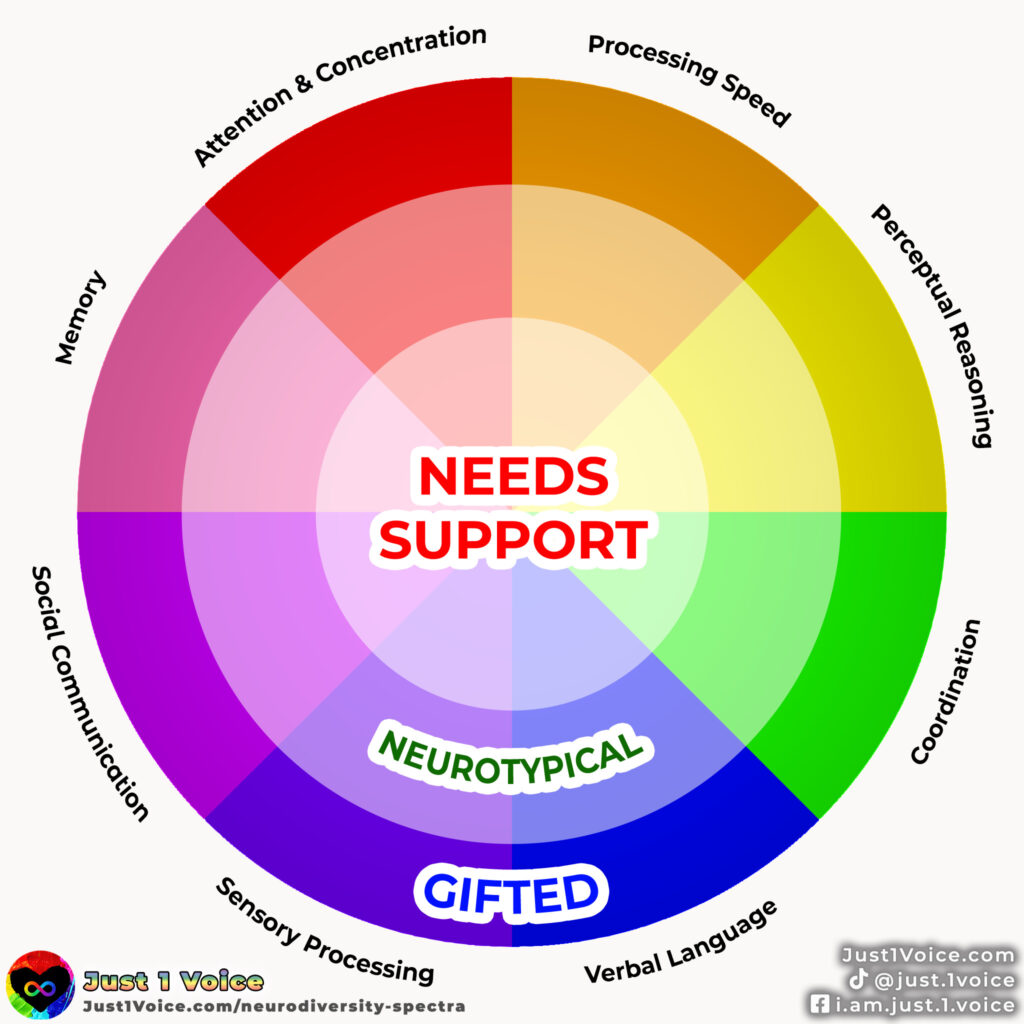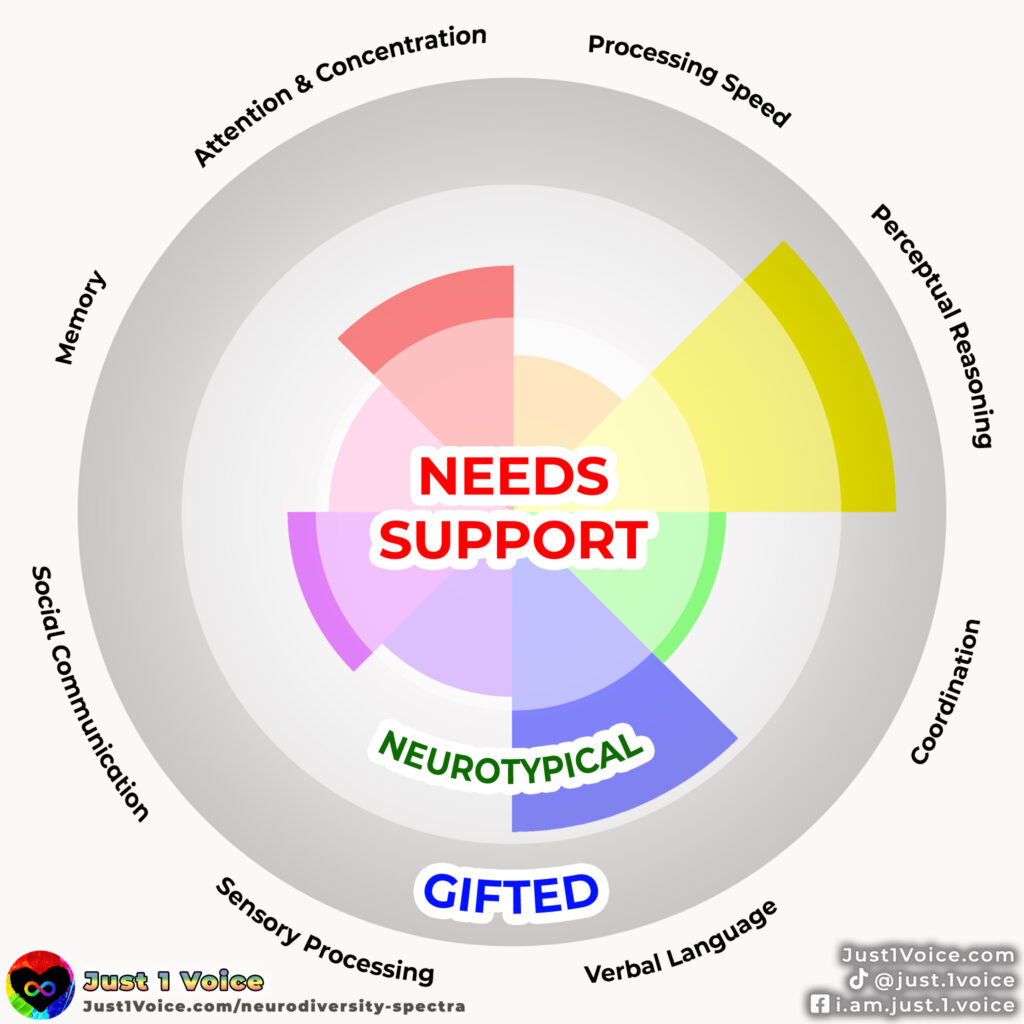Despite that IQ is an acronym for “intelligence quotient,” it is not actually a great indication of intelligence. Even the criteria for an intellectual disability (ID) has changed to not only rely on an IQ score.
For context, a child with a intellectual disability (ID) would have a full-scale IQ test score of 75 or below. A child that is considered to have a mild ID, also known as borderline intellectual functioning (BIF) would have an IQ in the 70-85 range. However, the test is no longer required for diagnosis and if it is done, it must now be interpreted in context with their adaptive skills.
| Classification | Percentile | Score Range | Alternative Terms based on IQ |
|---|---|---|---|
| Exceptionally Low | < 2 | < 70 | ID |
| Below Average | 2 – 8 | 70 – 79 | ID / BIF |
| Low Average | 9 – 24 | 80 – 89 | BIF |
| Average | 24 – 74 | 90 – 109 | Average |
| High Average | 75 – 90 | 110 – 119 | Mildly Gifted |
| Above Average | 91 – 97 | 120 – 129 | Moderately Gifted |
| Exceptionally High | > 98 | > 130 | Highly Gifted |
So let’s check out what other test scores are often discussed in a neurocognitive evaluation and how to reframe our measurement of intelligence.
- Verbal Comprehension Index (VCI): reflects an individual’s ability to understand, use, and think with spoken language. It also demonstrates the breadth and depth of knowledge acquired from one’s environment. It measures the retrieval from long-term memory of such information.
- Perceptual Reasoning Index (PRI): reflects an individual’s ability to accurately interpret, organize and think with visual information. It measures nonverbal reasoning skills and taps into thinking that is more fluid and requires visual perceptual abilities.
- Working Memory Index (WMI): reflects an individual’s ability to take in and hold information in immediate awareness and then perform a mental operation on that information. It also measures the mental manipulation of number operations.
- Processing Speed Index (PSI): reflects an individual’s ability to process simple or routine visual information quickly and efficiently. It measures visual and motor speed.
- Full Scale Intelligence Quotient (FSIQ or “full scale IQ”): a composite ability score that is based on the combination of the performance of the VCI, PRI, WMI, and PSI.
- General Abilities Index (GAI): a composite ability score that prioritizes the VCI and PRI and minimizes the impact of the WMI and PSI.
IQ vs GAI
So which is a better score, the General Abilities Index (GAI) or the Intelligence Quotient (IQ)? In short, neither of them mean much on their own—you need to look at the full picture to draw any meaningful conclusions. Perhaps instead of looking at a person like this:

We should look at each individual like this:


This is what we mean when we say autism is not a spectrum—it’s a spectra.
Twice Exceptional
Terms like “twice-exceptional” or “2e” are used to describe gifted children with a neurocognitive condition like autism or ADHD. These are your kids who will probably have a high GAI but low PSI, unless their PSI is too low and it brings down their calculated IQ (which acts more like an “average” of scores rather than any single measurement)
Sources
“Wechsler Adult Intelligence Scale-IV” (Jan. 2015). Washing Center for Cognitive Therapy.
